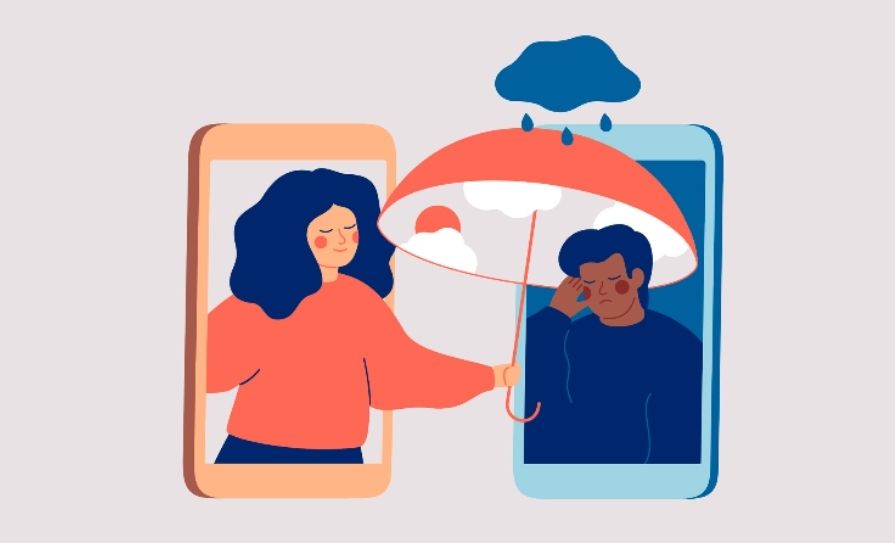Dr Louise Kyne, Dean, Faculty of Paediatrics, RCPI, highlights that children’s needs must be prioritised as we
work through the Covid-19 pandemic
Since 11 March 2020, when the World Health Organisation declared the Covid-19 pandemic, children’s lives have changed. As the duration and uncertainty of the pandemic persists, so does the fear, disappointment, and frustration that children express. While the experience to date has been that children are rarely ill and have a very good prognosis with Covid-19 infection itself, there are other collateral and profound impacts that the pandemic has had on children, especially those who are already in need due to poverty, homelessness or social exclusion.
The pandemic has presented enormous challenges to society, not alone from a health perspective but economically, socially, emotionally, and educationally. The impacts have been particularly pronounced for children in ‘lockdown’ and when out of their familiar school environment. Schools provide a role not just in education, but in identifying and meeting a wide range of social, emotional, physical, developmental, and mental health needs.
There has been an unprecedented increase in mental and physical illness, including eating disorders, mood disorders, self-harm, and other anxiety-related conditions, all over the world. Vulnerable groups have been exposed and it has pressed pause on their lives.
Children say to us they miss going to school and meeting their friends and relatives. Birthdays have been lost, as have communions, confirmations, and other faith events. There has been a lack of hugs and nice fun things. Adolescents also describe isolation, no social parties, concerts, debs, gyms, summer work, travel abroad, relationships, and generally no freedom. They feel they are losing out on opportunities.
Schools
Paediatricians and other child specialist groups have continuously expressed deep concerns about the negative impact that the protracted absence from school has had on children’s education potential, alongside effects on their mental health and wellbeing. The closure of schools reduced the opportunity for the acquisition of new knowledge, development and maintenance of peer-to-peer relationships, and also the loss of recently acquired skills.
The National Clinical Programme for Paediatrics and Neonatology in collaboration with the Faculty of Paediatrics developed a document titled ‘National Clinical Review on the impact of Covid-19 Restrictions on Children and Guidance on Reopening of Schools and the Normalisation of Paediatric Healthcare Services in Ireland’. This document describes the disproportionate impact of school closures on children from disadvantaged backgrounds, children with disabilities, and those with special needs.
School is where children are educated, make friends, learn social skills, and participate in sport and cultural activities. It was a challenging time for children with special needs/children with autism when routines changed. Paediatricians reported that a number of children had a deterioration in eating/sleeping and challenging behaviour. Regression occurred, the educational gap widened with the digital divide, and catch-up may be difficult with losses in learning that will not be easily recouped.
Junior and Leaving Cert students, children attending DEIS [Delivering Equality of Opportunity in Schools] schools, children from lower socio-economic backgrounds, and those with special educational needs, may have long-term exacerbated disadvantage due to losses they have endured. International reports of increasing numbers of adolescents disengaging from education and leaving school early will have long-term societal costs. A recent study showed that virtual learning during the pandemic is linked with decreased physical activity and worsening emotional health for parents and their children.
Dr John Murphy and Dr Ellen Crushell, National Clinical Leads in Paediatrics and Neonatology, highlighted that it was predicted by the OCED that the current cohort of children may expect a 3 per cent lower income over their lifetime following the 2020 lockdown (this figure will have increased in the period since). This is based on extensive research showing that each additional year of schooling increases an individual’s life income by 7.5-to-10 per cent. Virtual classrooms and remote learning are no substitute for physical learning environments.
Throughout the pandemic, the Government has been trying to balance the health and safety of the population on the one hand and the educational needs and rights of the children on the other. The return to school from the end of August to December was achieved successfully with no concerning rise in Covid-19 infections among school children and minimal school outbreaks. Contact tracing demonstrated that the infections occurring in children were mostly acquired in the community. School is the vehicle through which the State channels much of its investment in children.
Child safeguarding
Investing in early childhood has been shown to be one of the most cost-effective public health measures to ensure children are safe, fed, sheltered, nurtured, educated, and have the supports they require to achieve their full educational, health, and wellbeing potential. We are all too aware that, during the pandemic, there has been an increase in reporting of domestic violence and a rise in demand for refuge for women and children. There has also been an increase in calls to Childline, and in children needing foster care. The Central Statistics Office reported increased alcohol intake by adults in the home.
The Policing Authority has voiced concern about cyber safety – an issue also raised by the European Paediatric Association (EPA) in a document titled ‘The Dark Side of the Web – A Risk for Children and Adolescents Challenged by Isolation during the Novel Coronavirus 2019 Pandemic’. Schools play a crucial role as safety net providers/havens for children subjected to abuse. Family stresses, job losses, financial stresses and parental mental health burnout compound the issues.
Children and families who are marginalised and disadvantaged are at increased risk of Covid-19 due to congested accommodation settings, and outbreaks within these settings are challenging. These children are disadvantaged relative to their peers and face broad challenges in navigating safely through childhood into adulthood. The links between marginalistion and poor health outcomes are well documented and are likely to be further exacerbated because of the Covid-19 pandemic.
In December 2019, the Faculty of Paediatrics had called on the Government to abolish direct provision and place families in community-based, family-friendly housing and environments. Children in direct provision feel more isolated now than before. They report feeling most included in our society while they are at school. Social exclusion is a significant risk factor for long-term adult mental health problems. Similarly, the negative health effects of homelessness and inadequate housing was highlighted in a paper from the Faculties of Public Health Medicine and Paediatrics in 2019. Some 38 per cent of homeless children have a mental health or behavioural disorder of clinical significance.
Mental health
Prof Elizabeth Barrett, Consultant Child and Adolescent Psychiatrist, Children’s Health Ireland (CHI) at Temple Street, in a recent article in the Irish Medical Journal, described the risks and benefits of school closures during a pandemic. According to Prof Barrett, there may be parallel benefits/positive benefits for some young people spending quality time with family. However, general paediatricians are seeing a dramatic increase in children admitted with eating disorders/anxiety/depression and self-harm requiring paediatric liaison with Child and Adolescent Mental Health Services (CAMHS).
CAHMS and community psychology services are stretched and have been understaffed for years. Commenting in a newspaper article in January 2021 (‘’Mental health tsunami’ as children struggle with lockdowns’, Irish Independent), Prof Fiona McNicholas, Consultant Child and Adolescent Psychiatrist, CHI at Crumlin, said there was initially a reduction in referrals to all five of the Lucena clinics in Dublin and Wicklow at the start of lockdown and over the summer months. However, from September there had been a 50 per cent rise in referrals compared with the previous year, with rates in November increasing by 180 per cent.
According to the article, the number of mental health presentations by children aged five-to-15 years at the three paediatric emergency departments in Dublin had risen by 41 per cent from July to October 2020 compared with 2019. This trend has been seen worldwide during Covid-19.
Paediatric multisystem inflammatory syndrome
Severe Covid-19 continues to be rare in children, with few requiring admission to hospital in Ireland. Paediatric multisystem inflammatory syndrome, temporally associated with SARS-CoV-2 (PIMS–TS) – also referred to as multisystem inflammatory syndrome in children (MIS-C) – occurs in less than 0.5 per cent of children who had (or who have had) Covid-19. It generally occurs in children who were previously healthy. Children of all ethnicities may be affected, but experience from Ireland and the UK suggests that children of black and Asian ethnicity are more frequently or severely affected.
A high index of suspicion and early recognition are essential. Earlier experience has seen cases occur in the weeks following increases in Covid-19 activity in the community and we have had an increase in the past two months. Clinical features include, but are not limited to, persistent fever; rash; conjunctivitis; hypotension; tachycardia and or shock; vomiting; diarrhoea; and abdominal pain is also prominent. There is a morbidity, but early treatment is usually curative.
Future
A change is required now if we are to face the challenges of Covid-19 in children in the ‘new normal’. We must support stakeholders in education to enable schools to stay open and encourage scaling up community clinical services so that children can avail of developmental checks and the school-related health services including dental, vision and hearing screening, and vaccination programmes. We will advocate for better social inclusion and strong health initiatives for marginalised communities. The Faculty will engage with mental health and disability services to ensure we all work closely together to help each other – ‘Ar scáth a chéile a mhaireann na daoine’.
This article was produced by the RCPI.













Leave a Reply
You must be logged in to post a comment.